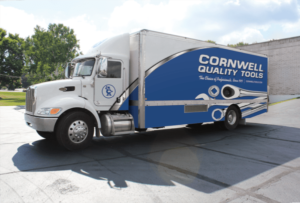Bring the time machine back to your childhood. Have you always had a passion for disassembling electronics and putting them back together? Did your friends contact you when their game consoles were down?
You have a natural talent and interest in electronics. With the right educational and business understanding, you can transform your skills into rewarding and rewarding careers.
Your first task is to make a plan of action. A solid plan will point you in the right direction and accelerate your career.
Learn how to become an electrical contractor starting from scratch.
What does an electrical contractor do?
Before embarking on a career path, let’s break down the roles and responsibilities of an electrical contractor.
An electrical contractor is responsible for the design and construction of electrical systems.
Many working parts are included in the electrical system, including but not limited to:
- residential wiring
- service panels
- sub-panels
- switches
- Electrical boxes
- Outdoor power lines.
- Soldering iron
Electrical contractors are often confused with electricians. Contractors design and install systems, and electricians troubleshoot them. Electrical contractors often hire electricians for projects.
General contractors use electrical contractors to build homes from scratch. Likewise, businesses need electrical contractors. City and government projects also rely on experienced contractors.
Demand isn’t slowing down, so this career can steer you in different directions.
You can start working as a full-time electrical contractor for a construction company. If you are in business, you can start an electrical engineering company after years of experience.
Types of Electrical Contractors
Now it’s time to narrow your career path. Ask yourself: What type of contractor are you?
Electrical contractors use the entire gamut.
For starters, line contractors work with high voltage.
These contractors design electrical systems for the following industries and other industries:
- Power plants
- Factories
- Car manufacturers
- Pharmaceutical companies
- Hospitals
- Military projects
Internal electrical contractors design electrical wiring systems for residential homes, small businesses, and most construction projects. If you choose this career, look forward to a lot of cable work.
The next career to consider is an integrated building systems contractor, also known as an IBS contractor.
These specialists are responsible for building wireless Internet networks, backup power supplies, fiber optic systems, LED lighting, and other low-voltage electrical work.
A career in Integrated Building Systems also concerns voice, data and video projects. This is why IBS contractors are often referred to as VCV professionals.
How to become an electrical contractor
Congratulations! You have found your lane. But you’re not quite ready for your first electrical job.
Your next challenge is to find the right education program for your career.
While a 4-year college degree is not required for this career, college-level electrical courses are a plus. Local community colleges also offer courses for your job.
If you want to accelerate your career, start with the Independent Trade Association of Electrical Contractors. IEC is the premier resource for aspiring contractors.
IEC internship programs can be found in over 50 locations across the country. There are also educational opportunities through the National Association of Electrical Contractors.
Get a license
There are various ways to get the training you need, but it is important to note that all professional contractors must be licensed to work. In addition, each state has its own licensing requirements.
Typically, most licenses require apprenticeships first. States can require up to 10,000 hours of training, in addition to 1,000 hours of classroom lectures.
If you want to quickly meet your requirements, look for an apprentice apprentice program in your city.
The Electrical Apprentice License is the first license you will acquire in your career. These programs provide much needed education and training in electrical theory. You will also be tested for your knowledge of national and local electrical codes.
Journeyman licensing programs end on average within two years. After your hours run out, you can finally apply for a first contractor license. The sooner you complete your training, the sooner you start working!
Once you have obtained your Apprentice License, apply for a Chief Electrician License. This license is a document that is required to bid for project contracts, obtain permits, manage projects, and create electrical systems.
Your licensing requirements don’t end there!
While you may be working professionally with a master’s license, your entrepreneurial spirit may have other goals.
After obtaining your master license, apply for an independent contractor license as soon as you can. This license is required to conduct business. However, pay your dues to another company first to find out about the latest developments in the industry.
Contractor licenses are not a one-off transaction. You must renew your license. However, the renewal schedule may vary from state to state.
Start working!
You have all the tools you need to build a successful career. In the next step, it is important to make informed decisions.
If you plan to work for a company, write a professional resume that highlights your skills, training, professionalism, and a proactive work ethic.
Include references from your training programs and other relevant skills.
If you can, take pictures of your work during training. A strong portfolio of apprenticeships can go a long way in finding your dream job.
After a few years, think about taking your career to the next level.
Use your Master Electrical license to open your business. of your own. This way you can start trading profitable government contracts!
Electrotechnical Construction Business Marketing
You are a contractor, not a marketer! You can surprise yourself. As you grow your electrical business, you will acquire vital marketing skills.
Build a website for your business or hire a developer who specializes in websites for your niche. Set up social media accounts to connect with your community.
Don’t forget to invest in a powerful PPC campaign to reach B2B leads.
Spark Your Career
This guide can be the start of a rewarding and rewarding career, but you must reach your potential.
Apply These Strategies When You Learn How To Become An Electrical Contractor!
The secret to career growth lies in continuous learning. Be sure to bookmark this blog to stay up to date with the latest tips and trends in your industry.

























